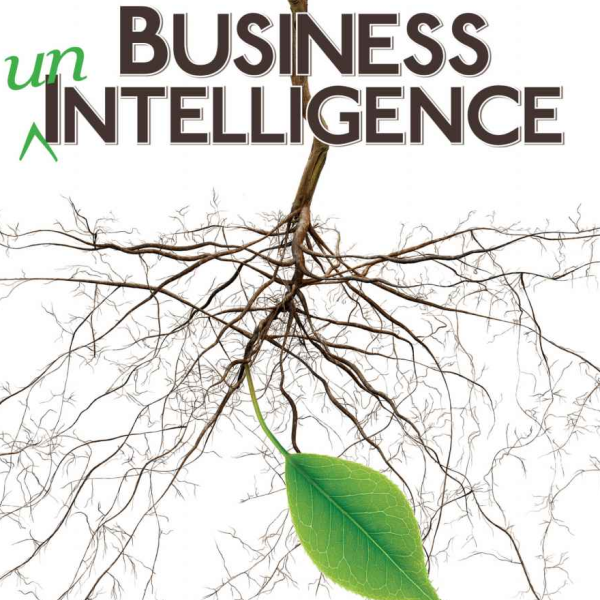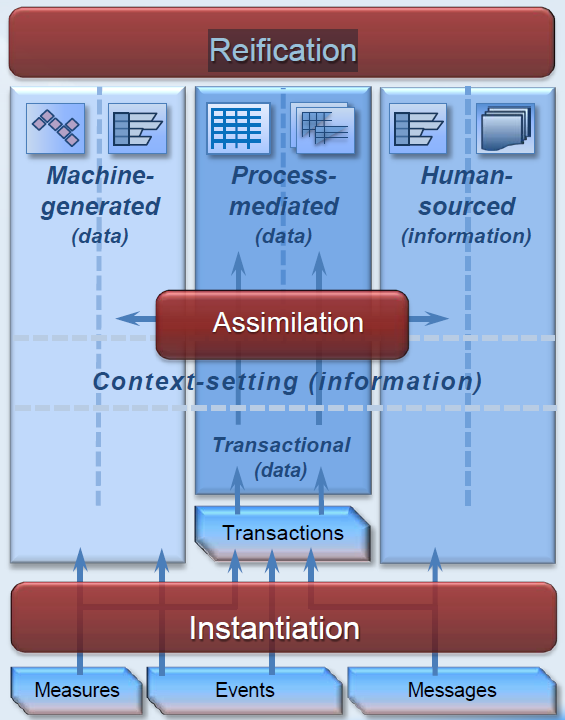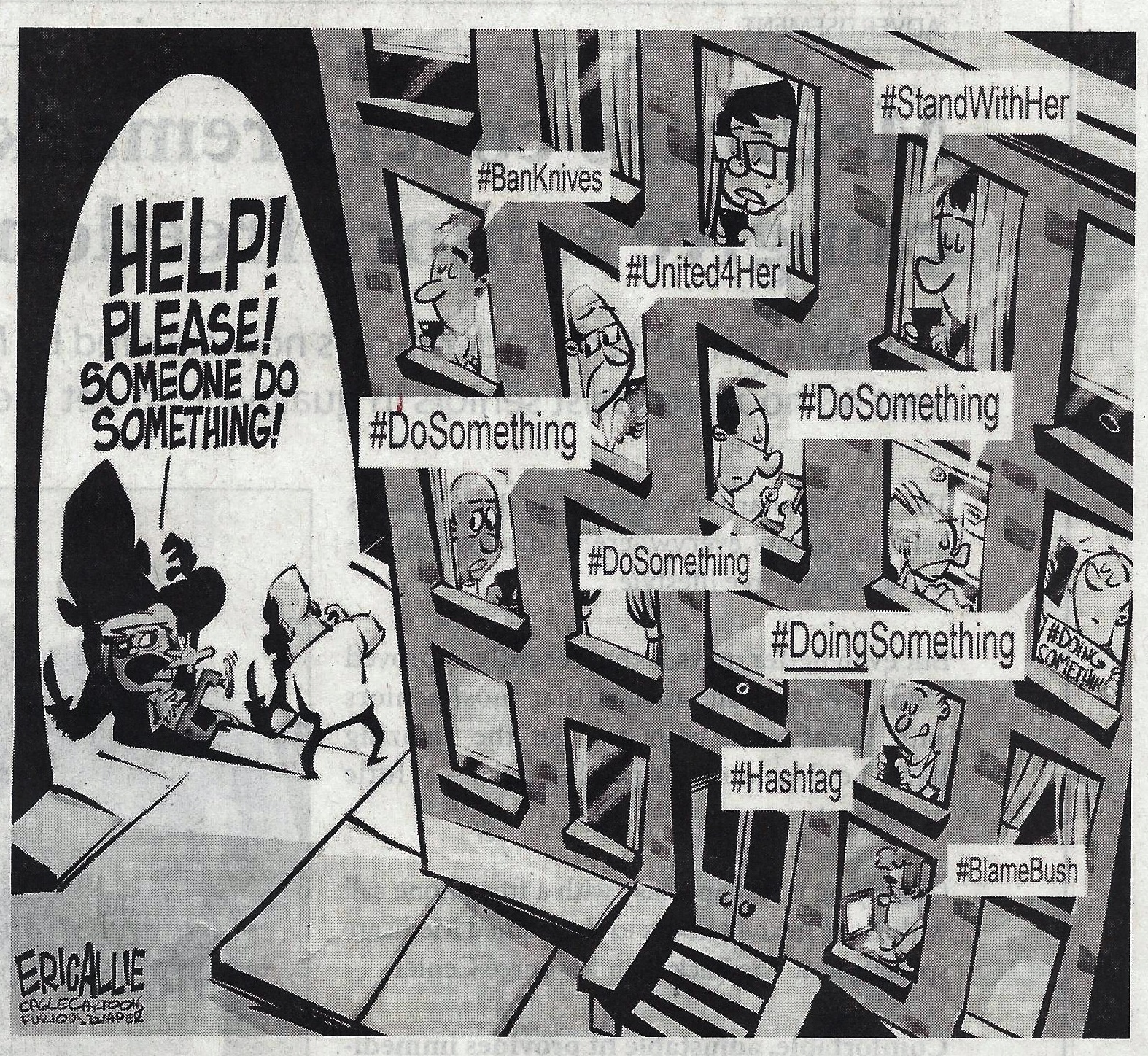 ACM Learning Webinars sponsored a talk by Dr. Barry Devlin on Business unIntelligence: Marriage of BI and Big Data. Devlin shared a fresh approach to the logical architecture supporting all types of data, as is captured in his recent book. In particular, he spent most of his talk describing the origins and implications of the architecture figure at the right.
ACM Learning Webinars sponsored a talk by Dr. Barry Devlin on Business unIntelligence: Marriage of BI and Big Data. Devlin shared a fresh approach to the logical architecture supporting all types of data, as is captured in his recent book. In particular, he spent most of his talk describing the origins and implications of the architecture figure at the right. 
However, the most insightful thoughts came in the last four slides. Taking Russ Ackoff’s pyramid of Data-Information-Knowledge-Wisdom, he argued that meaning of the data comes from people…the stories we tell ourselves, not from some impersonal abstraction. If we really want to ‘reify’ big data (i.e., make concrete, as shown at the top of the architecture), we must incorporate the emotional (gut-feel) of rationality.
He then shared his concerns about massive privacy breaches by major corporations, invasion of data snatchers by the Internet of Things (IoT), a proposal by Verizon to incorporate ambient action detection in DVRs, and finally advances in facial recognition that records your visual cues as you shop. His conclusion is that we should beware of the death of democracy via the erosion of privacy and the end of anonymity. Sobering thoughts, indeed!
You can view Devlin’s archive talk at the ACM Learning Webinar site (when it is post sometime in the future).
My take is that there is a loud silence among our BI-DW colleagues on ethical issues, which disturbs me. Devlin is commended for objectively and thoughtfully talking about these issues. It is incredibly difficult to deal with its complexity in an objective way. But at least, we can give specific examples, ask some perplexing questions, and start discussions …as Devlin did. What are your thoughts?

